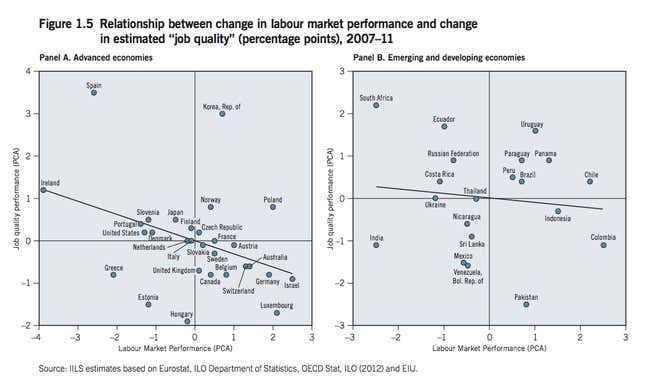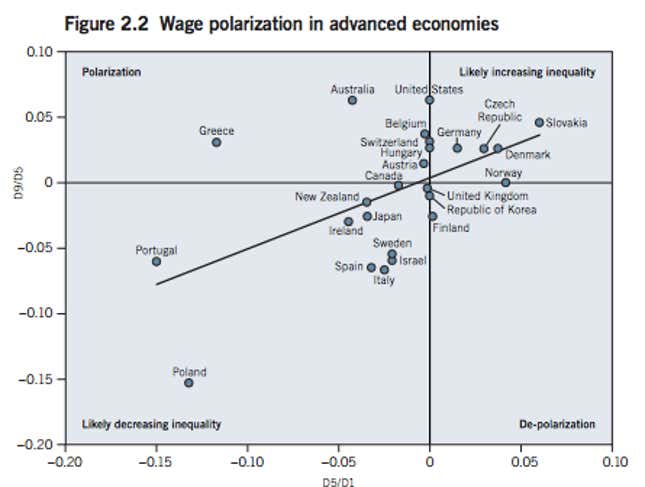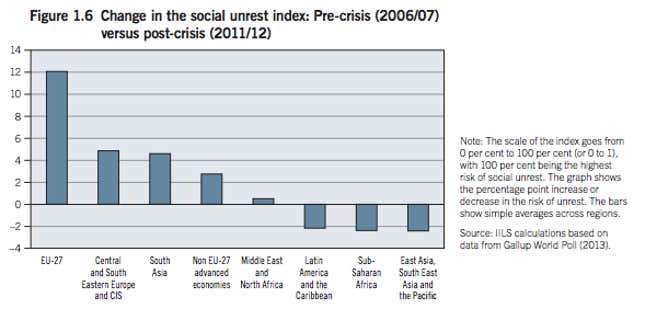The UN’s International Labor Organization released its annual “World of Work” (PDF) report today, and boy are the results depressing.
The employment rate won’t return to pre-crisis levels in emerging markets until 2015, while advanced economies will have to wait until 2017 for their work woes to end. But even then, the number of unemployed people is still set to grow 4% to 208 million in 2015. How can the employment rate and unemployment levels rise simultaneously? Because the unemployed are dropping out of the work force: In more than half of the countries surveyed, labor force participation declined largely due to discouraged workers giving up the job hunt.
Perhaps worse: job quality is worsening around the globe, even where the unemployment rate is falling. The study’s researcher made the chart below to compare “job quality,” measured by average wages, benefits and hours worked, and job creation, between 2007 and 2011. Basically, the place to be is in the top right quadrant (where countries are creating more and better jobs) and not the bottom left (where economies are creating fewer, worse jobs):

Worth noting: for most advanced economies, the new jobs being created are of lower quality, with the exceptions of countries like South Korea, Norway and Poland. The United States has fewer jobs, but is creating better ones—a finding that reflects growing inequality in the US. The emerging markets, on the other hand, are finding it easier to create more and better jobs because they’re starting from a low base. (In other words, it’s easy to improve job quality in a country where most people make less than $10 a day; it’s much harder in a country where the median income is $50,000 per year.)
An example of how advanced economies are creating more low-quality jobs? In Germany, the Hartz labor reforms created something called the “minijob,” a part-time, wage-limited gig that’s better than being unemployed, but worse than a good job:
Kemalettin Tunç, 40, an immigrant from Turkey, said he recently lost his job at a Mercedes factory in Bremen. For now, Mr. Tunç has a minijob as a taxi driver, earning €5 euros an hour. But he is confident his work experience will allow him to quickly find a new job. Still, the “job market is kaput,” he said, because “you earn little money.”
Based on the report, the trend in a boon for the wealthy. Top incomes in advanced countries have resumed their upward trend.
Meanwhile, the middle class is shrinking due to the growing disparity between higher and lower incomes, which exacerbates overall inequality:

And why does that matter?

